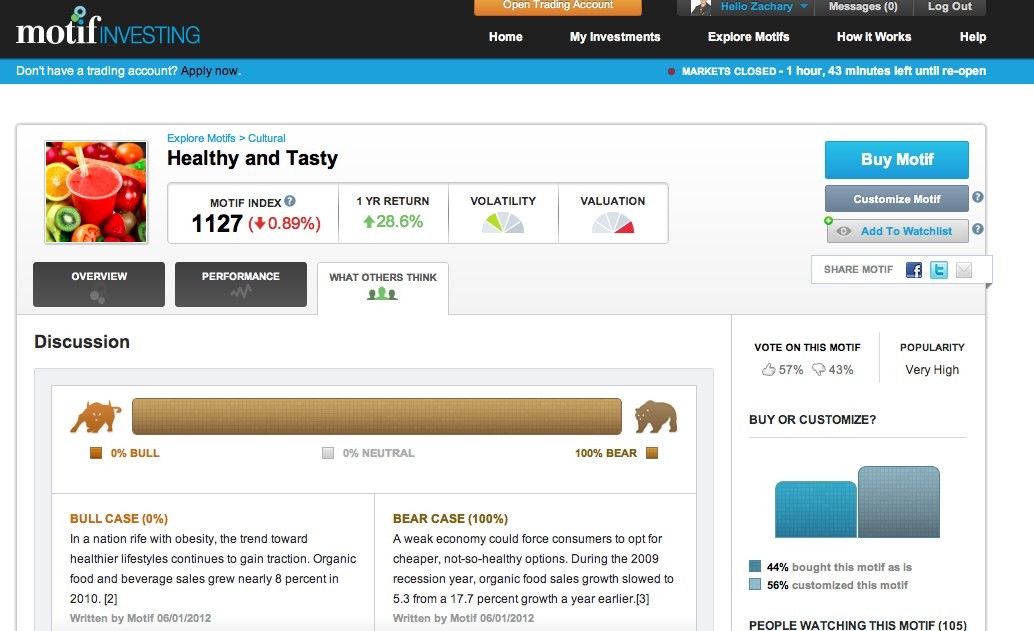The Investing Diet Six Tips For A Healthier Portfolio
Post on: 18 Июнь, 2015 No Comment

Follow Comments Following Comments Unfollow Comments
For many people, whenever investing comes up, their eyes gloss over. Either they can’t relate to the topic, feel insecure or are bored to tears.
On the other hand, food is a much more fun topic that people know a lot more about. Fortunately, food and investing have a surprising amount of similarities. If you know all about what a proper diet should contain, then you are a long ways toward understanding what your investment portfolio should look like as many of the guidelines are the same. Indeed, the comparisons with food can help you better comprehend and remember the key principles of investing. Let’s take a look at the more important examples:
A broad range of ingredients keep you portfolio healthy. As researchers now know, a natural mixture of “old fashioned” meals that our grandmothers made often delivered the wide-ranging diet of vegetables, carbohydrates and proteins that are most beneficial to our health. The same goes with prudent investing in a broad mixture of styles and asset classes, including stocks, bonds, REITS and commodities. This combination will reduce volatility over your lifetime while allowing you to capture the growth that eventually comes from each asset class.
Condiments can be valuable. A diet that includes even small amounts of various exotic flavors can be especially important to our bodies. For instance, just a sprinkling of chia seeds on a salad gives our body a surprisingly high amount of omega-3. Similarly, we now know that the traditional vitamin E tablets only give us one subtype of vitamin E. But we need a wide mixture of foods to obtain the amount of mixed tocopherols that our body needs. And just like with investing, even small amounts of several sub asset classes and investing styles like mixing in both active and passive, can give your portfolio the diversity it needs to decrease volatility over time. For instance, from the early 1980′s until this past decade, gold was a terrible under performer. Many advisors felt they could not put even a little gold into a portfolio due to poor short term performance. Yet in 2008 and 2009, holding even a little gold substantially decreased the loss in an overall portfolio. In essence, a little gold had the “chia seeds affect” in enhancing the overall investor investor diet. Thus, like with food, you can’t just look at each item or asset class on its own, but rather also look at how it can enhance your entire portfolio.
Be careful of the fads in dieting and in investing. Each year, there are new weight loss diets – the no carb, or vegan only, or eat only bananas diets. We now know that for many people, such diets do not last long and a broad balanced diet where you simply watch the portions, especially in the high caloric foods, is the safe long term way to diet. Similarly, with investments, each year we read of different hot investment ideas. One year it is all about oil and gas partnerships, the next year it is investing all your money just in ETFs. The important thing to remember with both food and diet, the time horizon is your lifetime. You want to keep a balance and not make any moves that are too radical at any one time. Investment portfolio returns typically get severely damaged if they follow too strongly and too quickly any particular new investing idea.
A diet should be designed for the long haul. How many times have we seen friends go on miserable crash diets, lose 40 lbs. only to gain it all back within 6 months? Similarly with a portfolio, an aggressive concentrated bet on a particular stock or asset class can bring you a quick stellar increase, but how often is it sustainable? Indeed, typically this quarter’s top performing fund is more likely to become next quarter’s bottom performer. Your diet and your portfolio both need to be structured so you can live with it for your lifetime, not just the next year. In the case of investing, you want to keep the discipline of investing every year at least a small portion into your portfolio. You want to spread it across many asset classes and not worry about any given day’s results. You should not make any sudden changes to your diet or your portfolio if you want to remain healthy.

With desserts and with trading, a little is okay. When many people hear that they can’t ever have any dessert if they want to keep their weight down, they bristle. In fact, it can inadvertently send them down the “binge eating road.” Similarly, when you are building up your long term family portfolio, you may not be able to resist the temptation to try and beat the market. In the grand scheme of life, having a dessert or trading stocks is not a terrible thing. It is just a question of how much. Having a half or quarter portion of dessert once in a while is fine. In the case of active trading, if after building up your long term stable investment portfolio, you want to take a small portion of your money, like 5 to 15%, and play with trading stocks, that is okay – just so long as you do not risk your core long term investment portfolio. That portfolio is best left alone in order to allow time to work its magic.
Food and money can be more emotional than rational. What is one person’s delight is wholly unappetizing to another. We all know people who can’t experiment when it comes to trying any new dishes. They stick to the “comfort” foods they had as a child. Yet, we know how interesting and healthy it is to have a variety of cuisine. Similarly with investing, people who only invest in the US, although it is a great market, will miss out on participating in the growth of the rest of the world.
So, the next time you wonder if you are following the right principles of investing, just think of what the right principles of diet are and it will likely be a good guide for you.
Tim McCarthy is the author of The Safe Investor: How to Make Your Money Grow in a Volatile Global Economy (Feb 2014; Published by Palgrave Macmillan). Timmccarthy.com














